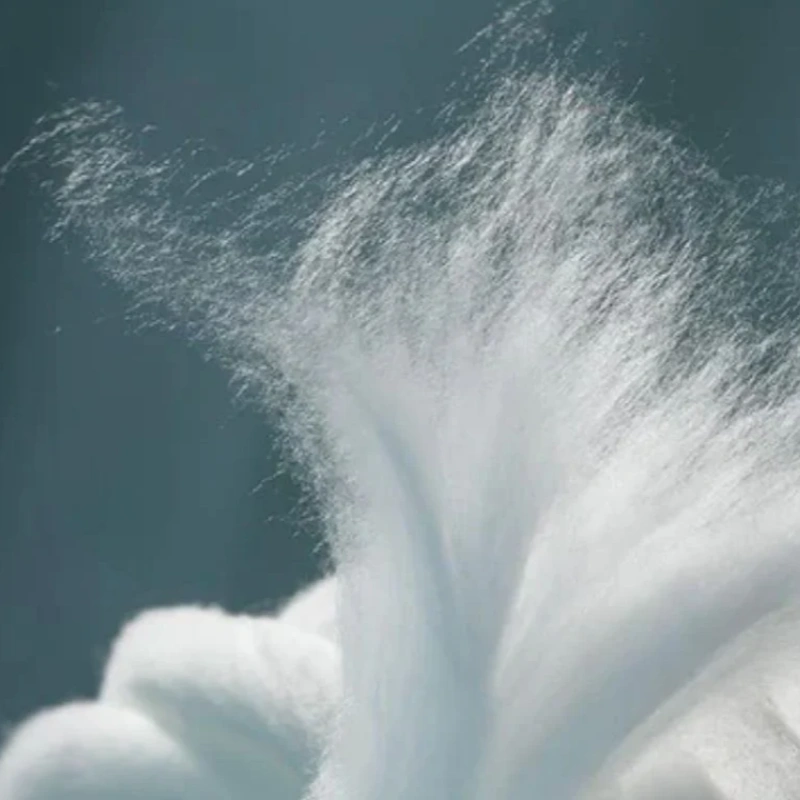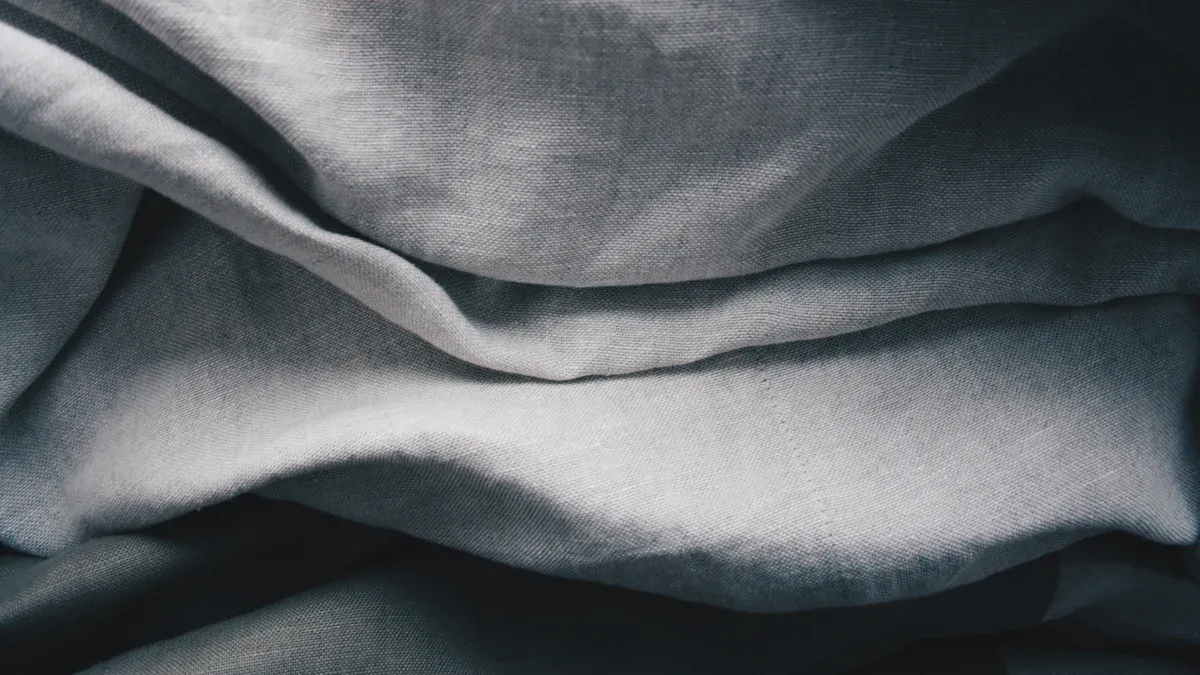
Is Tencel a natural fiber? You might wonder about this when shopping for eco-friendly pajamas. Tencel comes from wood pulp, so it starts as a natural fiber, but the process turns it into a semi-synthetic material.
This matters if you care about sustainable fashion and want to make smart choices for the planet. As more people choose green options, the Tencel market keeps growing, especially in places like Asia Pacific and North America.
Friendtex stands out by using Tencel in premium sleepwear, blending quality with a real commitment to sustainable fashion.
Key Takeaways
Tencel is a semi-synthetic fiber made from sustainably sourced wood pulp using an eco-friendly closed-loop process.
Tencel pajamas feel soft, smooth, and keep you cool and dry by wicking moisture better than cotton.
Tencel is strong, durable, and easy to care for, resisting shrinking and maintaining softness after many washes.
Tencel production uses less water and chemicals than cotton, making it a more sustainable and planet-friendly fabric.
Friendtex uses certified Tencel to make premium, hypoallergenic pajamas that combine comfort, luxury, and eco-conscious values.
Is Tencel a Natural Fiber?
What Is Tencel?
You might have seen the question, “Is Tencel a natural fiber?” pop up when you shop for eco-friendly clothes. The answer is a bit more interesting than a simple yes or no. Tencel is the brand name for Lyocell, a fiber made from the cellulose found in wood pulp.
Most often, this wood comes from fast-growing eucalyptus trees. The process starts with nature, but then scientists use a special closed-loop system to turn that wood pulp into soft, silky fibers. This means Tencel sits between natural and synthetic—it’s called a semi-synthetic or regenerated cellulose fiber.
Let’s break it down. Cotton is a natural fiber because you can pick it straight from the plant and spin it into thread. Tencel, on the other hand, needs a bit of science. The wood pulp gets dissolved and then spun into new fibers.
Even though it starts with plants, the chemical process makes it different from something like cotton. This is why people sometimes get confused about its classification.
Here’s a quick look at how Tencel compares to cotton:
Aspect | Tencel (Lyocell) | Cotton |
|---|---|---|
Scientific Classification | Semi-synthetic regenerated cellulose fiber from eucalyptus wood pulp | Purely natural fiber from cotton plants |
Source Material | Sustainably sourced eucalyptus wood | Cotton plants |
Production Process | Closed-loop chemical process recycles over 99% of solvents | Grown with irrigation, pesticides, and fertilizers |
Environmental Impact | Less water, no pesticides, lower emissions | More water, more land, more chemicals |
Fiber Properties | High moisture absorption, soft, breathable, durable | Softness varies, with less moisture absorption, wrinkles easily |
Biodegradability | Fully biodegradable | Fully biodegradable |
You can see that Tencel fibers offer some big advantages, especially if you care about the planet. The closed-loop process means almost all the chemicals get reused, so there’s very little waste. Eucalyptus trees grow fast, need little water, and don’t require pesticides. That’s a win for sustainability.
Tencel Fabric Origins
Tencel fabric has a pretty cool backstory. Scientists first created Lyocell in the late 20th century. The British company Courtaulds launched it as a new, sustainable fabric made from managed trees.
Later, the Lenzing Group in Austria took the lead, using their decades of experience to perfect the process. Today, Lenzing is the main producer of Tencel lyocell and modal fibers, making sure the wood comes from certified, responsibly managed forests.
The wood for Tencel fibers usually comes from eucalyptus, beech, or spruce trees. These trees grow on land that isn’t good for food crops, so they don’t compete with farming. The wood pulp gets turned into a pure cellulose solution, then spun into long, silky fibers.
The whole process uses a closed-loop system, which means almost all the solvents and water get recycled. This makes Tencel one of the most eco-friendly fibers you can find.
You might wonder why brands choose Tencel. For companies like Friendtex, the answer is simple. Tencel fibers are soft, strong, and breathable. They feel amazing against your skin and help keep you cool and dry.
Friendtex uses certified Tencel in their premium pajamas, so you get comfort and peace of mind knowing your sleepwear supports sustainable practices.
Tip: If you want pajamas that are gentle on your skin and the planet, look for Tencel lyocell or modal on the label. You’ll enjoy the silky feel and know you’re making a smart, eco-friendly choice.
Tencel Fabric Production
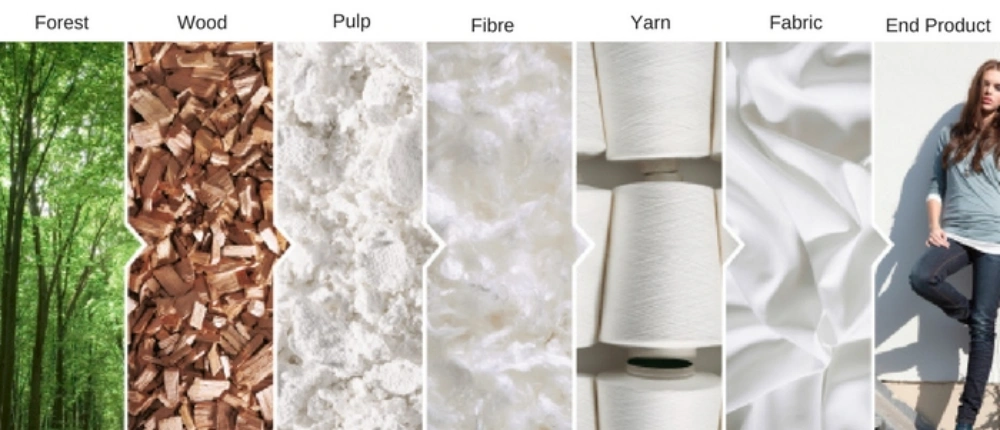
How Tencel Is Made?
Ever wondered how Tencel is produced? The process is pretty cool and eco-friendly. Tencel, also known as Lyocell, starts its journey as wood from trees like eucalyptus or beech.
These trees grow fast and need little water, making them a great choice for sustainable textiles. Here’s a simple breakdown of how Tencel is made:
Workers harvest wood from sustainably managed forests.
They debark the wood using high-pressure water jets and chip it into small pieces.
The chips go into a chemical digester to soften them.
The pulp gets washed, dried, and rolled onto spools.
Next, the pulp soaks in a non-toxic amine oxide solvent under heat and pressure until it dissolves.
The solution is filtered to make sure it’s smooth.
It’s then spun through spinnerets, forming long lyocell fibers.
The fibers get washed, treated, and crimped for texture.
Finally, the fibers are carded, aligned, and baled for shipment.
The best part? The closed-loop system recovers and reuses about 99% of the solvent and water. This means almost zero waste and a much smaller environmental footprint compared to other fibers.
Sustainability of Tencel
You might ask, Why is Tencel considered such an eco-friendly and sustainable fabric? The answer lies in both the process and the materials. Tencel is biodegradable, so it breaks down naturally after use.
The closed-loop production system keeps waste low and reuses almost all water and solvents. This makes Tencel a top choice for anyone who cares about the planet.
Friendtex takes things even further. The company uses only certified tencel, including lyocell and modal blends, for their pajamas. Friendtex holds certifications like OEKO-TEX, GOTS, and FSC.
These prove that their tencel is safe, non-toxic, and made with respect for the environment. Friendtex sources wood pulp from sustainable forests and focuses on making pajamas that last, so you get comfort and style without guilt.
Tip: If you want pajamas that are soft, breathable, and good for the earth, look for Friendtex’s tencel sleepwear. You’ll enjoy luxury and help support sustainable textiles at the same time.
Tencel vs Cotton and Modal
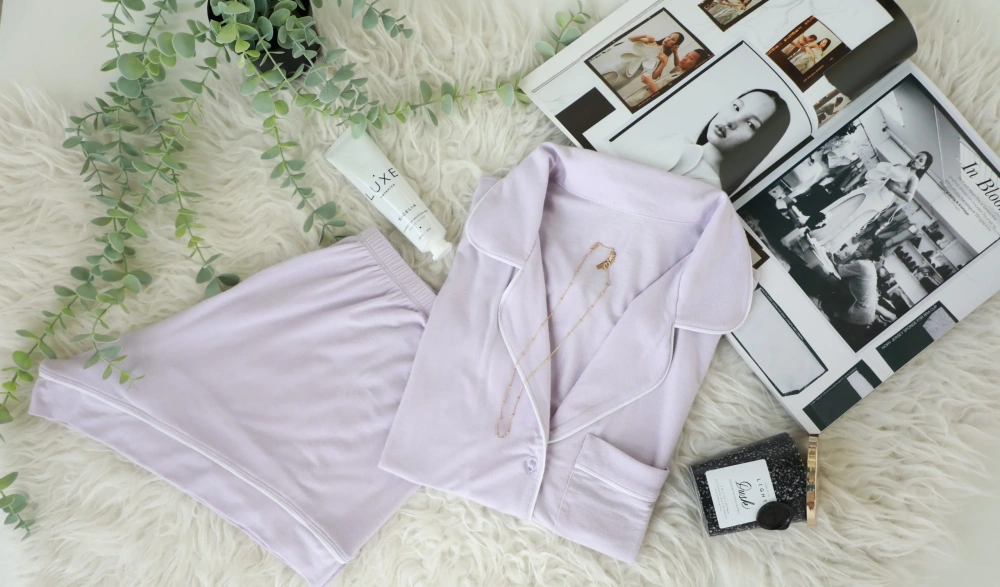
Comfort and Breathability
When you slip into pajamas, you want them to feel soft and keep you cool. Tencel clothing stands out for its silky touch and cooling effect. The fibers have a smooth surface, so they feel gentle against your skin. Tencel and modal both wick away moisture better than cotton, which means you stay dry and comfortable all night.
Cotton is breathable, but it can trap moisture, especially if you sweat. Modal feels soft and plush, but it’s a bit bulkier than tencel. If you want pajamas that help you sleep cool and dry, tencel pajamas from Friendtex are a great pick.
Here’s a quick look at how these fabrics compare in breathability:
Fabric Type | Breathability | Moisture-Wicking | Feel |
|---|---|---|---|
Tencel (Lyocell/Modal) | High | Excellent | Silky, smooth |
Cotton | Moderate | Good | Soft, classic |
Modal | High | Excellent | Soft, plush |
Tip: Tencel clothing is a top choice if you want pajamas that feel light and keep you fresh.
Durability and Care
You want sleepwear that lasts and stays looking good. Tencel is strong and resists wear and tear, even after many washes. Modal is also strong, but it needs a bit more care to avoid shrinking.
Cotton is durable, but it can shrink and wrinkle more easily. Tencel clothing is low maintenance—just machine wash in cold or warm water and tumble dry on low. Modal and cotton both need careful washing to avoid shrinking and wrinkles.
Aspect | Tencel (Lyocell) | Modal | Cotton |
|---|---|---|---|
Durability | Strong, long-lasting | Strong care is needed | Durable, can shrink |
Shrinkage | Resists shrinking | Shrinks if not careful | Shrinks easily |
Care | Easy, low maintenance | Needs gentle care | Needs gentle care |
Friendtex’s Tencel Pajamas, Modal Pajamas, and Pima Cotton Pajamas all offer premium quality, but Tencel stands out for its easy care and lasting softness.
Environmental Impact
If you care about the planet, you’ll want to know how your pajamas are made. Tencel uses a closed-loop process that recycles almost all water and solvents, making it very eco-friendly.
It grows on land not used for food and needs little water. Modal is also eco-friendly, using less water and land than cotton. Cotton, especially conventional cotton, uses a lot of water and land and often needs pesticides.
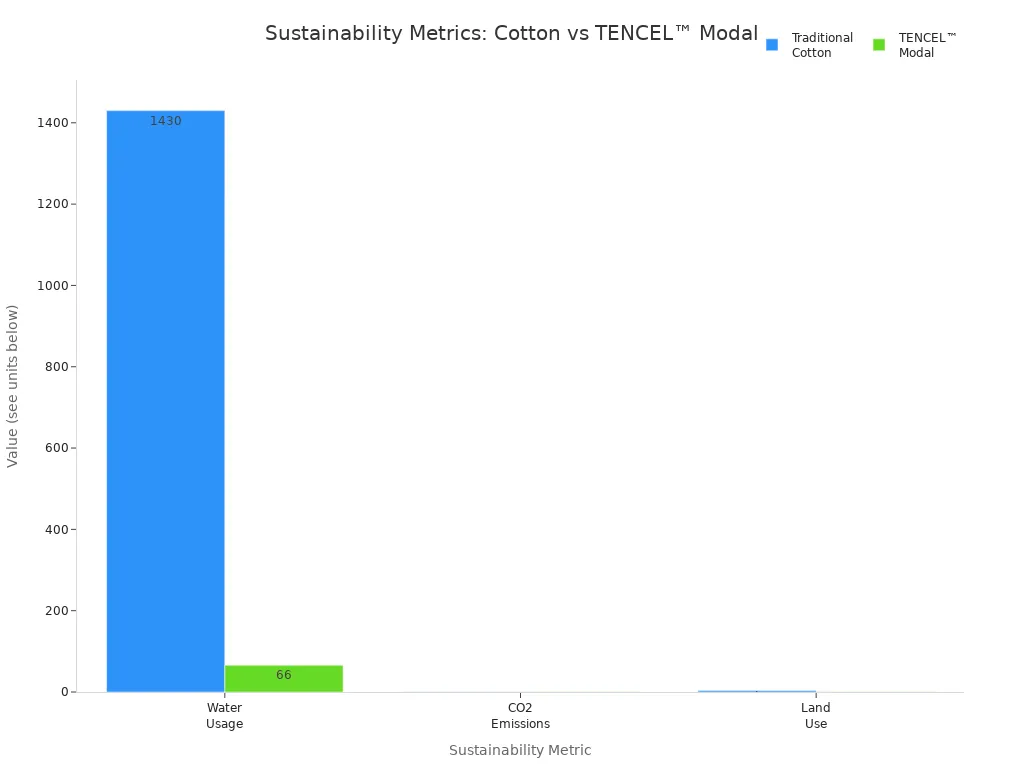
Friendtex sources tencel and modal from certified suppliers, so you know your pajamas are made with care for the environment. Tencel clothing is a versatile and sustainable choice for anyone who wants to look good and feel good about their impact.
Advantages of Tencel Fabric
Benefits of Sleepwear
When you look for the perfect pajamas, you want something that feels soft, keeps you dry, and is gentle on your skin. That’s where the benefits of Tencel really shine. Tencel is absorbent, so it pulls moisture away from your skin and helps you stay cool and dry all night.
Tencel is breathable, which means air flows easily through the fabric, making it comfortable in both warm and cool weather. You’ll notice that Tencel is comfortable from the first touch—its silky texture feels smooth and luxurious.
Here are some of the top benefits of Tencel for sleepwear:
Tencel is absorbent and wicks away sweat, so you don’t wake up feeling sticky.
Tencel is anti-bacterial, which helps keep your pajamas fresh and odor-free.
Tencel is great for sensitive skin because it’s hypoallergenic and reduces irritation.
Tencel is anti-bacterial and resists dust mites and allergens, making it a smart choice if you have allergies.
Tencel is versatile and works well for all seasons, keeping you cozy in winter and cool in summer.
Tencel is eco-friendly, made from sustainably sourced wood pulp with a closed-loop process.
If you compare tencel clothing to cotton or modal, you’ll see that tencel is anti-bacterial and outperforms cotton in moisture management. Modal feels cool, but Tencel’s moisture-wicking efficiency stands out. Tencel is versatile, so you can wear it year-round.
Why Choose Friendtex Tencel Pajamas
You want pajamas that feel like a treat every night. Friendtex Tencel Pajamas deliver luxury, comfort, and sustainability in one package. Customers love how Tencel is comfortable and keeps its softness, even after many washes. The fabric’s natural sheen adds a touch of elegance, and the pajamas resist pilling and stretching.
Friendtex uses only sustainably sourced Tencel, so you can feel good about your choice. The pajamas are hypoallergenic, making them perfect if you have sensitive skin or conditions like eczema. Tencel is anti-bacterial, so your sleepwear stays fresh longer. Friendtex also offers customization, so you get the style and fit you want.
Tip: If you want pajamas that combine comfort, luxury, and eco-friendly values, Friendtex Tencel Pajamas are a smart pick. You’ll sleep better knowing you made a sustainable choice.
Conclusion
You now know Tencel sits between natural and synthetic fibers, offering a unique blend of softness, breathability, and sustainability. Compared to cotton and modal, Tencel uses less water and energy, feels smoother, and manages moisture better, perfect for eco-conscious buyers.
If you want sleepwear that’s gentle on your skin and the planet, Friendtex Tencel Pajamas are a smart choice. Think about your comfort, skin needs, and values when picking your next pair of pajamas.
FAQ
What makes Tencel pajamas different from cotton pajamas?
Tencel pajamas feel smoother and wick moisture better than cotton. You’ll notice they stay cool and soft, even after many washes. If you want pajamas that are gentle on your skin and eco-friendly, Tencel is a great choice.
Are Friendtex Tencel pajamas good for sensitive skin?
Yes! Tencel is hypoallergenic and gentle. You won’t feel itchy or irritated. Many people with sensitive skin or allergies love how soft and soothing these pajamas feel.
How do I wash and care for Tencel pajamas?
Just toss your Tencel pajamas in the washing machine with cold water. Use a mild detergent. Tumble dry on low or hang them up. They resist shrinking and keep their shape.
Tip: Skip bleach and fabric softeners to keep your pajamas looking new!
Do Tencel pajamas last a long time?
Absolutely. Tencel fibers are strong and durable. You’ll find your pajamas keep their softness and color, even after many washes. With proper care, they can last for years.


